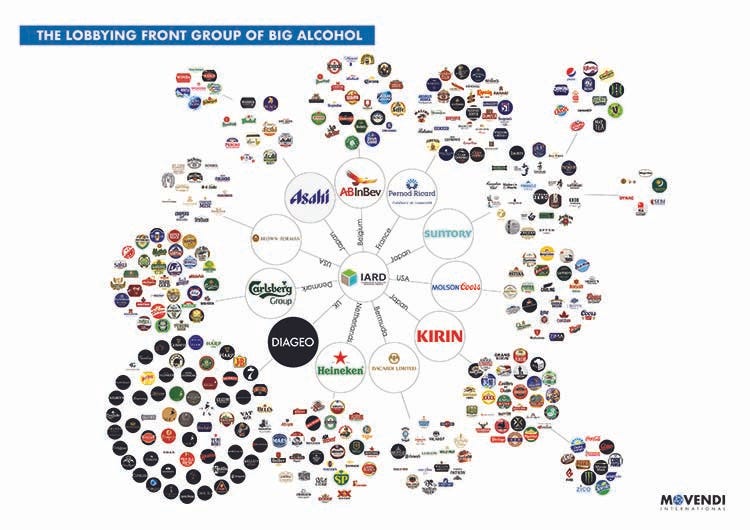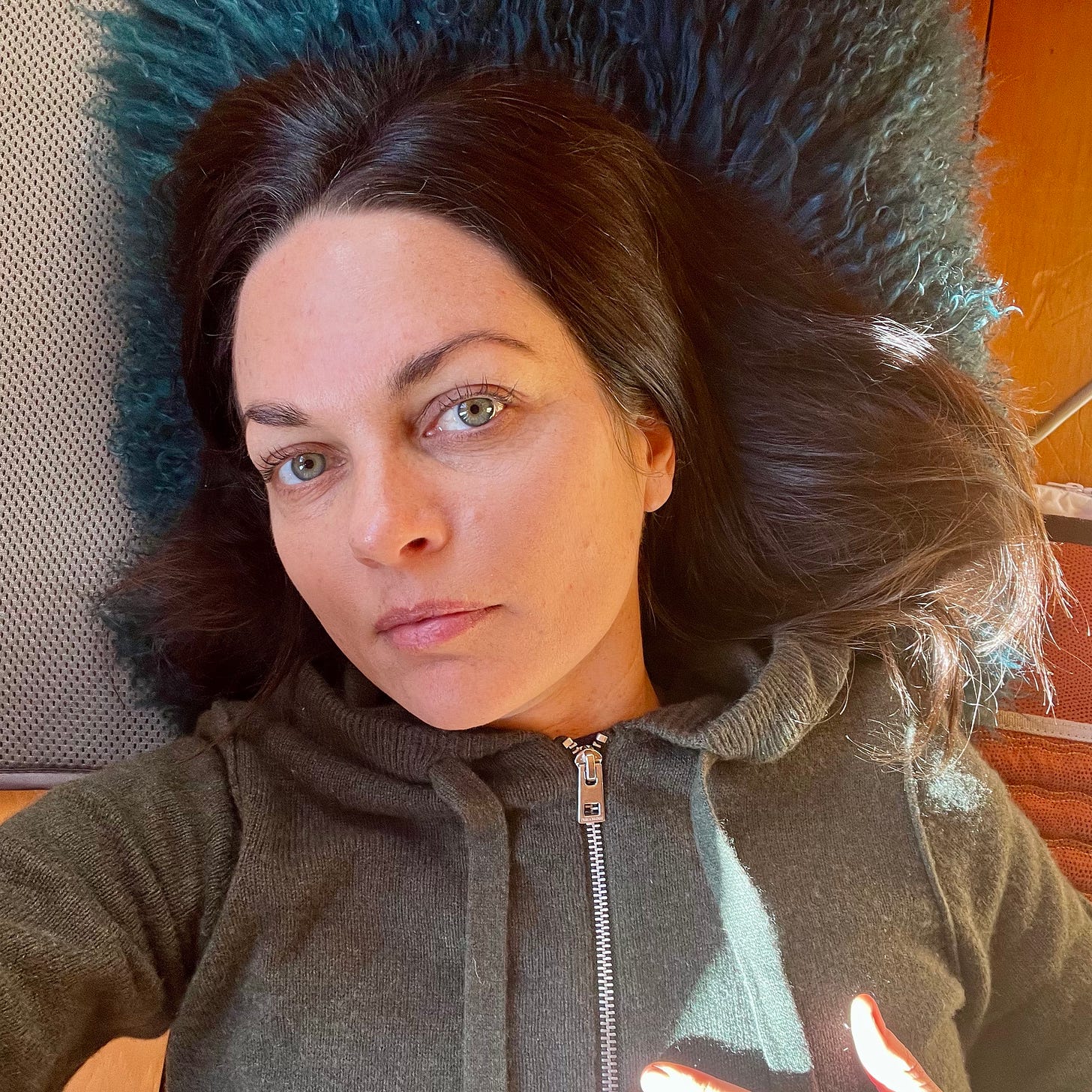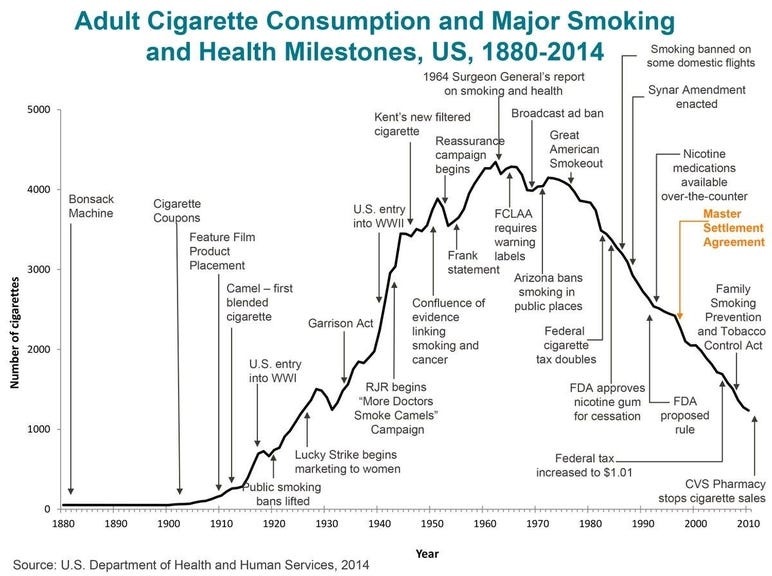TGIF :: Informed Choices, Alcohol & Cancer, and Why They're Freaking Out in Europe This Week
Weekly Drop || #8
Today I share some potentially off-putting facts about the health risks associated with alcohol. If this is too much of a buzzkill for your Friday, I suggest you skip this one and I’ll see you next week. 👈🏼 ***Note that this is the sometimes people pleasing codependent in me that hasn’t completely healed yet, already apologizing for sharing uncomfortable truths. #workinprogress
A Deal with the Universe
On January 20th, eight days after my lumpectomy, I experienced a deeply unsettling internal struggle with fear. Our oncological surgeon had informed us that it would take “about a week” to determine if my breast cancer had spread. It had been eight days. No news.
I spent the day, my first alone since the surgery, moving from room to room in our home, waiting for a UCSF MyChart notification, or even better a phone call. Silence.
As the hours passed, I prayed. I tried to nap. I tried to write. I tried to read. I tried to eat. At one point after several hours of this I found a sunlit patch on the bedroom floor and lay down, looking up at the ceiling and started to negotiate with the Universe. If you do this for me, I’ll do this for you, and so on. We made a deal: If the cancer had not spread, if I was spared from metastasis, I vowed to do what I can to raise awareness about the connection between alcohol and cancer, particularly breast cancer.
Alcohol and Breast Cancer?
I quit cigarettes for the last time in my late twenties. I was aware of the numerous health risks associated with smoking and about to embark on the journey of motherhood. Continuing this known carcinogenic habit felt incompatible with being a mom and I ultimately reached a point where I could no longer rationalize it.
But I continued drinking “socially” for another twenty years until pausing for good in 2017. I was among the 70% of Americans unaware of the direct link between alcohol and cancer until I was diagnosed myself and began researching cancer’s various potential causes. Despite my years of reading and writing about the merits of ClearLife, it was only earlier this year that I discovered the alarming connection between alcohol and this disease.
Alcohol is a known group 1 carcinogen alongside asbestos, radiation, and tobacco. Despite the efforts of the Big Alcohol industry to impede the dissemination of this emergent science, the truth about the health risks associated with all types of alcoholic beverages, regardless of quantity, is slowly but surely reaching consumers. Obstructive and calculated campaigns have aimed to create a barrier between consumers and scientific evidence for years. However, the awareness of the detrimental effects of alcohol on health is slowly gaining momentum.
My own research is compiled here in this open Google Doc with a few highlights below:
The World Health Organization, January 4, 2023: “No level of alcohol consumption is safe for our health . . . Although it is well established that alcohol can cause cancer, this fact is still not widely known to the public in most countries. We need cancer-related health information messages on labels of alcoholic beverages, following the example of tobacco products.”
The American Institute for Cancer Research: “All types of alcohol, including wine, beer and liquor, increase cancer risk. For some cancers, such as breast and esophageal, the risk starts increasing with less than one drink per day.”
The American Cancer Society: “[I]t is best not to drink alcohol.” Note that this is a recently updated recommendation. The prior version focused on moderation.
For a juicier read: Wired Magazine: Alcohol is the Breast Cancer Risk No One Wants to Talk About, October 5, 2021: “breast cancer is the second most common cancer (after skin cancer) and the second deadliest (after lung cancer) in women . . . According to a 2020 analysis of a CDC and Prevention survey, only about one in four women ages 15 to 44 knows that alcohol is a risk factor for breast cancer.”
If Alcohol is Carcinogenic, Why Don’t More of Us Know?
Similar to the tobacco industry decades ago, the alcohol industry has infiltrated scientific activities conducted by trade associations, social aspect organizations, and the large global producers under the umbrella of corporate social responsibility. They are funding research projects, interpreting scientific findings for the public, and consulting in the development of alcohol control policies, and promoting commercial interests at the expense of public health. A recent Rutgers journal review detailing the above can be reviewed here.
One component of these efforts concerns product labeling. In the U.S., warning labels for beer, wine and hard liquor haven’t been updated for more than three decades, predating the recognition of alcohol as a group 1 carcinogen. Labels note that (1) women should not drink during pregnancy, (2) alcohol impairs the ability to drive and to operate heavy machinery, and (3) drinking “may cause health problems.” Most countries, including the U.S., provide limited information or no explicit mention of the links between alcohol and cancer on their labels. You can review label requirements from around the world here.
From the New England Journal of Medicine: The language “is so understated that it borders on being misleading” and reflects “outdated science regarding alcohol’s harms” resulting in 70% of U.S. adults being unaware of alcohol’s cancer links (summary here).
The Harvard School of Public Health is chiming in too: “Americans deserve the opportunity to make well-informed decisions about their alcohol consumption. . . Designing and adopting new alcohol warning labels should therefore be a research and policy priority.”
This is not an accident. There is a massive lobbying machine, much like the one that played a similar obstructionist role in the Big Tobacco era, working hard to keep the public in the dark about the health dangers associated alcohol. It is finally coming to light what’s been going on here, and “there is growing evidence that the alcohol industry opposes effective alcohol policies and is actively engaged in activities that have a negative impact on public health.”

Ireland’s Bold Move
This week Ireland became the first nation in the world to require extensive health labeling on alcoholic beverages. The new law, taking effect in 2026, requires that all alcoholic product labels include calorie count, grams of alcohol, and clear warnings on the risk of consuming alcohol during pregnancy, liver disease, and fatal cancers (you can review the Ireland Ministers for Health press release here).
“This law is designed to give all of us as consumers a better understanding of the alcohol content and health risks associated with consuming alcohol,” Minister for Health Stephen Donnelly said in a statement. “With that information, we can make an informed decision about our own alcohol consumption.”
As reported by Firstpost, Rachel Morrogh, director of advocacy at the Irish Cancer Society, welcomed the new regulations. “Today’s announcement shows that once again, Ireland is trailblazing in the area of public health legislation,” referring to Ireland being the first nation on earth to ban smoking in enclosed workplaces, including its notorious pubs in 2004.
The Irish Examiner reports that that most Irish citizens do too: “The measures have strong public support in Ireland with 72% of consumers agreeing that they have a right to be informed in advertising of the public health risks from alcohol use.”
A “Wicked Choice”
Not everyone is happy about this new requirement. Numerous countries (and counting), including the United Kingdom, United States, New Zealand, Australia, Mexico and Cuba, have already lodged protest at the World Trade Organization (WTO) while Italy, Spain, France and 10 other EU member states have also flagged their concerns to the European Commission.
Italian agricultural minister Francesco Lollobridiga has been particularly vocal: “We will monitor the impact of this wicked choice and we will do everything possible to ensure that common sense sweeps away useless alarmism in Europe.”
Comments from Lollobridiga and others generally concern (1) a perceived threat to their commercial interests in this multi-billion dollar market and (2) overreaching as “[a]buse is one thing, the conscious consumption of an excellence that has always accompanied the life of our communities is quite another.”
They are missing the point.
This is About Information, Not Prohibition
No one is prohibiting drinking. No one is interrupting access or sales. This new law is about labeling alcoholic beverages with known health risks—to raise awareness—so that consumers can make informed decisions, just like we do with countless other products.
Alcohol causes at least seven types of cancer . . . This type of evidence is largely missing from the conversation around alcohol consumption in Ireland in terms of the huge harm inflicted on the fabric of society by alcohol companies in the pursuit of profit and wider market share.
— Alcohol Labeling is About Letting Consumers Know the Truth, Irish Examiner, January 16, 2023
It Smells Like Cigarettes in Here
There are a lot of similarities between what’s going on with Big Alcohol and what we witnessed with Big Tobacco:
Products that are addictive and carcinogenic. ✅
A massive, global, profitable industry represented by some of the most powerful groups of lobbyists in the world. ✅
Decades of media and advertising linking such products to being cool, sexy, relaxed, affluent, and sophisticated. ✅
Active obstructionism keeping facts about health risks from the public awareness. ✅
Campaigns targeting the fastest growing demographic of possible users: women. ✅
Following Trend Lines
If you review the below chart you’ll see the significance of the 1966 collaborative efforts among the FTC and CDC in requiring warning labels on tobacco products (FCLAA requires warning labels at the top of the curve).
It is my hope that Ireland is the first of many nations that will mandate health risk labeling so that we can make more informed decisions about alcohol the way we have about tobacco. In time we may also see advertising restrictions (prohibiting targeting minors), taxes to cover the enormous cost burdens imposted by alcohol abuse (see CDC report here), and various access limitations to support heightening awareness and wellbeing around the world.
“Alcohol is Different; It’s Healthy, in Moderation, Right?”
Maybe. Science surrounding alcohol and any possible health benefits remains limited and controversial. Unfortunately, even large scale studies on “healthy drinking” have been shut down as seen in the case where the NIH halted a $100 million trial due to concerns over industry influence (New York Times exposé here).
We all know some people are more sensitive to the potential harms than others and most people who drink won’t die of cancer. In fact, my great grandmother died of natural causes at 108 (painted eyebrows, prickly personality and all!) and had a daily martini right up until the end.
All that said, this (dated) Harvard School of Public Health article “Alcohol: Balancing Risks and Benefits” (the first result when I search “Is alcohol good for you?”) includes some important updates at the end and concludes “There are risks and benefits . . . it’s important to have the best information about all of those and come to some personal decisions, and engage one’s health care provider in that process as well.”
Exactly.
What About That Deal with the Universe?
Five days after that negotiation with the Universe on my bedroom floor I still didn’t have my lymph node test results. We returned to the hospital for an in-person meeting with my oncological surgeon on January 18th. It was during this meeting that we received the news that my breast cancer had indeed spread, albeit in a minimal capacity referred to as a “micro-metastasis.” Despite this setback, I was informed that with my current treatment plan and a bit of good luck, I have a lengthy and vibrant life still ahead of me.
So…
Do I still want to help raise awareness about a risk I wasn’t aware of? Of course.
Did alcohol cause my breast cancer? Maybe, we’ll never know.
Did alcohol cause my alcoholic mother’s fatal esophageal cancer? Likely.
If I’d known alcohol is a group 1 carcinogen decades ago, would I have quit along with cigarettes in my twenties? Probably—at at least I would have imbibed way less.
Do I hope we’re all at the tippy top of a usage graph similar to the Cigarette Consumption chart above? Absolutely.
Do I want to do everything I can to do my part in raising awareness on this topic, alongside some of my more intimate ClearLife experiences… even though my deal with the Universe didn’t work out as I had hoped? Hell yes.
Final Thoughts and My Why
“At every moment, we always have a choice, even if it feels as if we don't.” —Tina Turner 🖤
I’ve been reflecting on my own choices and my own why in writing this. Every day, we make innumerable choices that impact our health and well-being. My aim here isn't to interject my thoughts into your choices or to judge the manner in which you live your life. Nobody can, or indeed desires to, lead a “perfect” life.
For example, still undergoing long term cancer prevention treatment, I find myself wrestling with choices around coloring my hair. I’m aware that the chemicals aren’t great for me, but neither is my experience of going gray (at least not yet). Similarly, for some of us, the simple joy of sharing drinks with friends meaningfully contributes to our overall wellbeing, despite the potential drawbacks of alcohol. We pick our battles, as they say.
I’ll admit I’ve found a certain pleasure in sharing what I’ve learned through extensive research on the connection between alcohol and cancer. I’m also thrilled to see Ireland courageously rocking the boat and drawing attention to this critical issue. But in tapping into the underlying feeling, my why, the real answer is that I’m pissed off.
I lost my mother to an alcohol-related cancer. I myself just navigated through a scary experience with my own. Decades ago, I quit cigarettes due to well-known health risks, oblivious to the parallel risks associated with drinking—a habit I continued. Why do we remain oblivious to the risks of alcohol? Because those who profit from our consumption would rather we remain in the dark.
Hearing the news about Ireland’s bold move this week stirred a mix of emotions within me. Yes, I am still angry that we’re having some kind of Big Tobacco déjà vu, but it gave me hope. It reminded me of my deal with the Universe. It reaffirmed my faith that we are headed in the right direction. And I’m ready and willing to play my part, because, after all, a deal is a deal.
Thank you for reading—and sharing if you like. Knowledge really is power.
Be well.








How is it going since then? You might have written and I'll be looking around. You share great information here. I think it needs to be shared more often because so many are unaware of this. I was until I got breast cancer in my early 30s. I had no idea about the link until later. I hope things are going well for you and it's good that they caught it before it completely metastasized!
Cool …I do think the reasons for choosing sobriety has to be an inside job though …rather than chosen because of scientific studies.
Navigating what we consume is a constant and the key, for me at least, is, “Does this add life, is it of a neutral impact or does it compromise life engagement and my vitality?”
Clearly for your 108-year old great grandmother, it added life, rather than took it away.
As for your mom, it is also clear that some form of disconnect happened with her appreciation of alcohol and her abuse and excesses of it which led to her early death.
Drawing that line, to drink or not to drink, is really not as much about the science as it is about our own life force and honoring that inner voice that says, “This is Cab, or Chard, or Mescal tastes a amazing and this delights me or, it actually doesn’t taste great and isn’t worth the sip or the glass or bottle because I know, I”ll feel like s#*t the next day.”
Alcohol is just one of hundreds of environmental carcinogens we are constantly exposed to and certainly your recent face-to-face encounter with cancer has sharpened your focus on eliminating the ones you have more control over, in terms of exposure.
Good on you ❣️
Having lost a sister and mother to breast cancer I also know, based on their alcohol consumption, that alcohol was not the likely culprit.
Re: Ireland’s initiative, sounds like it is long overdue and congrats to that country for taking a lead on mandating some basic warning that does reflect the science. A great start !
Thanks Cecily for a thoughtful and honest reflection of your passion here to raise awareness.